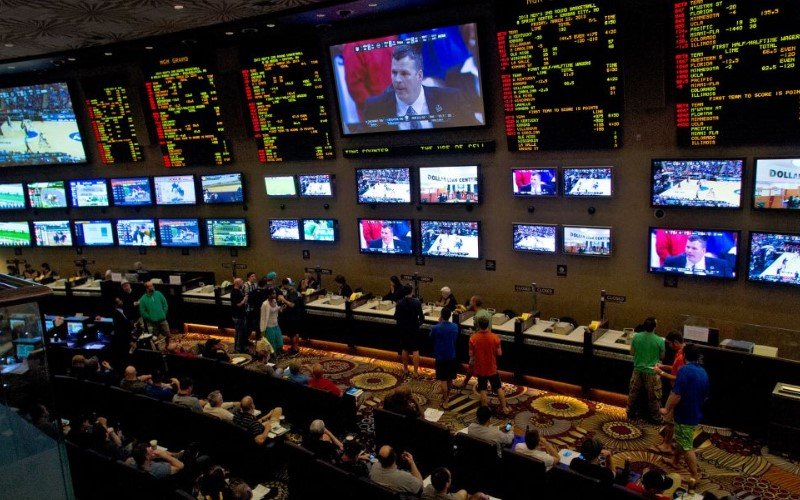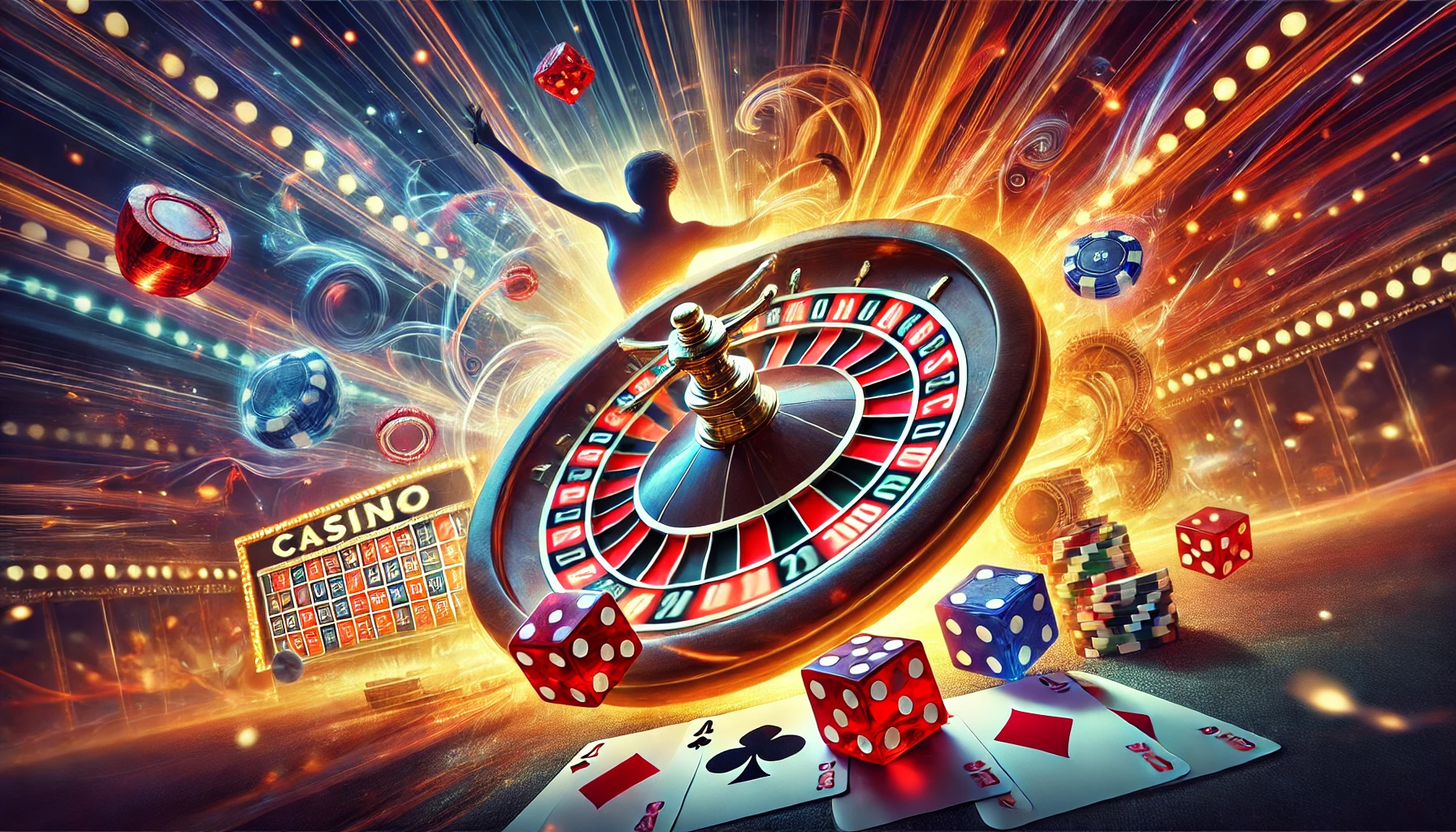Probability is an essential part of casino games and can be applied to determine the likelihood of winning and losing. It may sound trivial to regular gamers, and the urge to just get on and play is far more exciting than calculating odds. But casinos use probability to make business. They use it to create an edge over players and turn a profit in the long run.
Beginner's luck is a myth, as are winning or losing streaks. At the end of the day, probability is your best tool to create your betting strategy and try to make your gaming profitable. Understanding how odds work will also change the way you approach a game, and enhance your ability to make informed decisions in the spur of the moment.
How to Calculate Probability
Probability is calculating the likelihood of a specific outcome. It can be expressed as a fraction, a ratio or a percentage. For example, a coin flip has a 50% chance of landing on either side. With standard die, the likelihood of the die landing on one specific face is 1 in 6, or 16.67%.
These are fairly simple examples, but the concept behind calculating probability is always dividing 1 by the number of possible outcomes. For example, in roulette odds, the real probability of the ball to land on one number are 1 in 37.
1 / Possible Outcomes
1 / 37 = 0.027
Times that by 100 to turn it into a percentage, and we have a 2.7% chance of the ball landing on our chosen number.

Where House Edge Comes Into It
If casinos did not charge juice, then the odds of betting on 1 number on a European Roulette wheel (0-36 numbered segments) would have to be 37x. This means that if you bet an equal stake on every single number, you would always make your money back. Larry places $1 on each number, costing him $37 to cover every single segment on the wheel. When the ball lands on a number (doesn't matter which, he will win regardless), he will get a payout of $37.
But casinos do not offer odds of 36/1 or 37x for betting on a number in Roulette. Instead, they offer a payout of 35:1, meaning Larry would lose by a single dollar if he covered every number. This is the juice, or vig, that casinos charge in invisible fees. It may seem unfair at first, but then consider this:
- Casinos don't charge you to sign up
- Generally, your deposits are not charged
- They don't have fees on keeping money in your account
- When you withdraw, you don't need to pay the casino any charges
The business needs to keep making a profit, and they do so by taking their cut on your winnings. Or not yours necessarily.
Vig: Where Casinos Take Their Invisible Cut
To give you the rough idea, we will take the example of point spreads at sportsbooks. These are bets in which a spread is applied to the scoreline to level the perceived difference between two teams. Let's say you bet on an NFL game between the Kansas City Chiefs and the Seattle Seahawks, where the Chiefs are the heavy favorites to win. Instead of moneyline betting, you are going to bet against the spread.
The sportsbook prices the difference between the two teams at 5.5. This means, if you bet on the Seahawks, they will receive a boost of +5.5 points to overcome the Chiefs. Betting on the Chiefs, and they will have a -5.5 spread, which they must overcome to win.
But both wagers are priced at the same odds, as the two teams are now level with this spread. The probability should be 1/1 on either team, as now they both have a 50-50 shot of winning. Betting sites will not price the bets at 1.0 (+100 in American odds, 1/1 in fractional). Instead, they will price the wagers at odds of 1.91 (-110 in American, 10/11 in fractional).
If you picked 6 spread bets at these prices, staking them individually, and won only half, you would lose money. Let's say you place $10 on each of the six spread bets, and only 3 won. That would bring you $57.27 in winnings, but you spent a total of $60 staking each bet.
The probability is 50% for each, but the sportsbooks imply that the probability is 52.38% because they are using the shorter price. This means, you need to win 52.38% of your bets in order to break even.
Dissecting Sports Betting Probability and Odds
The key word there is Implied Probability. This is the probability of an outcome merely going on what the odds are. Odds and probability have a reciprocal relationship, as in if one is higher, the other will go lower. Therefore, when sportsbooks cut the odds a little, they are increasing the implied probability – or the implied likelihood that this wager will win. The implied probability will be higher than the actual possibility of the event occurring.
In a lot of cases, this is not as straightforward as 35:1 on a Straight Up roulette bet or 10/11 bets against the spread. There are loads of variables in sports, and it is near impossible to calculate the real possibility of a team winning or losing a game.
- Injuries during the game
- What goes on in the dressing room
- External factors that play a part
- Fear factor and psychological stress
And sometimes, it is just a matter of pure luck that determines the outcome of a game. Sportsbooks generally calculate the odds through all sorts of software and algorithms. They crunch the numbers until they come up with odds that they can sell. Generally players take the odds at face value, but with a little further inspection, you will find they all have juice.

How Much House Edge is OK in Sports Bets
The house edge will vary between sportsbooks, but can also depend on other factors. Niche sports, props bets and player bets may have varying degrees of juice. Bets that have numerous possible outcomes can have higher juice, as the odds will be lengthy in any case.
Generally, 5% juice is acceptable, and what you can get at the bigger sports betting sites. Juice is rarely divided equally. For example, if a sportsbook notices that most bettors want to bet on a specific line, say the favorites in a game, this bet will have slightly more juice. The contrasting bet on the underdog will have less juice, but most bettors will not back them anyway.
When juice is 10% or longer, then you should probably shop around a little bit. Some sportsbooks have longer juice on certain sports because they have a more limited coverage. For example, betting on UFC, it is more likely to find longer odds at a specialised UFC betting site. As opposed to a general sports betting site that covers everything from Call of Duty to Gaelic football.
Exploring House Edge in Casino Games
The odds in casino games are displayed in paytables or payout tables. The odds on classic games of roulette (American, European and French), are generally the same at any casino you go to. The house edge varies a little depending on which variant of Roulette you play. French and European Roulette generally have lower house edges of 2.7%, but American Roulette (with 0 and 00 making 38 different segments) usually has a house edge of 5.26%.
In card based games, the odds can vary based on how many decks are used, what types of bets are offered, and what odds the casinos price their bets at. It also makes a difference whether you are playing an electronic game that is programmed with RNGs, or you are playing at a live dealer table with real cards.
Special Case: Slots Probability
Slots fall into a completely different category, as we cannot really calculate the exact probability of each possible outcome. Paytables show how much you can win from each combination of symbols, and how many paylines (or different ways to win) there are. But the probability of each outcome is not displayed. Instead, we get Volatility rates and Return to Player percentages. Volatility is a term used to define how often you win. RTP is the theoretical percentage of how much you can win playing the game.

RTP can never be over 100% – and generally falls within the 90-97% range for slots. For other types of games, such as video poker, it can be much higher. As far as volatility is concerned, low or high volatility does not necessarily mean you will win more or less. High volatility may mean more frequent wins, but of a smaller value. Whereas low volatility may mean you need to wait for a win, but when it comes it is usually generous.
Improving Your Edge Over the House
In card based casino games especially, there are strategies that players can use to improve their edge over the house. Blackjack, for example, is a great example of this. There are strategies that will tell you when to hit, double down, surrender, and stand, based on your hand and the dealers hand. The formula varies heavily depending on which variant of Blackjack you are playing, and which functions the game provides you with. For example, does the dealer stand on 17, do you have a double down function, and whether or not you can play multiple hands at once.

Similarly, there are similar strategies for Roulette, Baccarat, and even Video Poker. Below are some handy links where you can learn about gaining an edge in different casino games.
Conclusion
The most important aspect to take out of this is the following. Casinos will always take their cut, and give themselves an edge over you. This means you will need to win more often than the real probability is, which makes your job all the harder. But knowing this, you can plan your spending and gaming more tactfully, and experiment with different strategies to get ahead.
There is a lot of trial and error, and naturally, luck plays a significant part in what will happen. But knowing how the games work and how to increase your advantage will hopefully bring you the wins you need to land in the green.

 1 month ago
83
1 month ago
83







![Anime Reborn Units Tier List [RELEASE] (November 2024)](https://www.destructoid.com/wp-content/uploads/2024/11/anime-reborn-units-tier-list.jpg)
